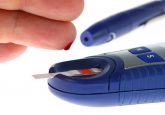UK research programme develops simple blood test for cancer

Researchers from the University of Bristol (UK) and the University of Exeter (UK) are in the process of developing a simple blood test for the detection of cancer.
Research recently published in the British Journal of Cancer reports the development of a simple blood test for the diagnosis of certain cancers. The study is a joint effort by scientists from the University of Bristol (UK) and the University of Exeter (UK), and is part of the Discovery Programme – a partnership of NHS trusts and six Universities aiming to transform the diagnosis of cancer.
For the first time, the research demonstrates that high levels of calcium in the blood may be used as an early indicator of certain cancers. Occurring in 10–20% of cancer patients, hypercalcemia – increased levels of calcium – is the most common metabolic disorder associated with cancer. The study analyzed the electronic records of 54,000 patients with hypercalcemia, identifying the number of individuals that were ultimately diagnosed with cancer.
The analysis revealed a sharp gender difference in the cancer risk associated with elevated calcium levels. In men, the risk was found to be far greater; with even mild hypercalcemia (2.6–2.8 mmol/L of calcium per litre of blood) the risk of cancer diagnosis within one year was 11.5%. This risk increased to 28% if the calcium levels were even greater (above 2.8 mmol/L). In men, 81% of the cancer associated with hypercalcemia was caused by lung, prostate, myeloma, colorectal and other hematological cancers. However, in women the risks were much reduced, with the corresponding figures being 4.1% and 8.7% respectively.
Fergus Hamilton, who led the research at the University of Bristol, admitted that the team was surprised by the gender difference: “There are a number of possible explanations for this but we think it might be because women are much more likely to have hyperparathyroidism, another cause of hypercalcemia. Men rarely get this condition, so their hypercalcemia is more likely to be due to cancer.”
Hamilton also noted that previous studies on this topic had involved those patients already diagnosed with cancer. He commented, “Hypercalcemia was seen as a late effect of the cancer. We wanted to look at the issue from a different perspective and find out if high calcium levels in blood could be used as an early indicator of cancer and therefore in the diagnosis of cancer.”
If successful, the development of a simple blood test for the early detection of cancer could significantly enhance the efficacy of diagnosis.
Sources: Simple blood test could be used as tool for early cancer diagnosis; Hamilton F, Carroll R, Hamilton W, Salisbury C. The risk of cancer in primary care patients with hypercalcaemia: a cohort study using electronic records. British Journal of Cancer. 111(7), 1410–1412, doi:10.1038/bjc.2014.433 (2014) (Epub ahead of print).






